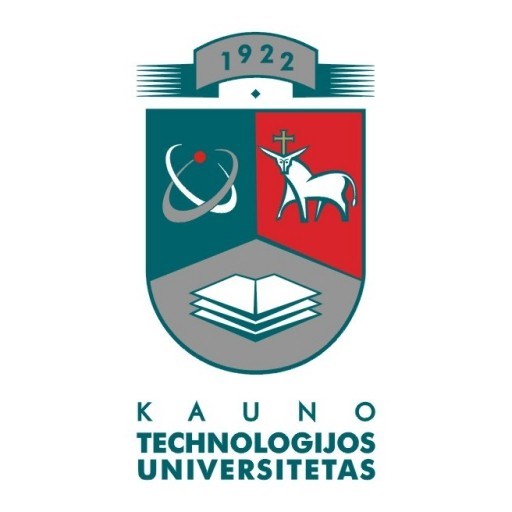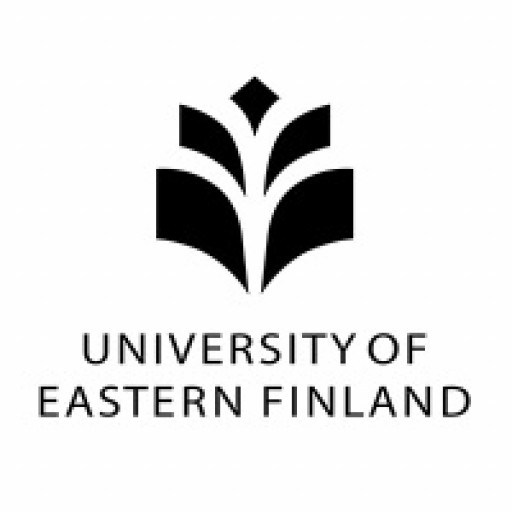Photos of university / #cranfielduni
The MSc in Advanced Materials at Cranfield University is a comprehensive postgraduate program designed to equip students with in-depth knowledge and practical skills in the development, characterisation, and application of innovative materials. This program caters to graduates aiming to advance their careers in materials science, engineering, or related industries by providing a solid foundation in the latest technological and scientific advancements in materials development. Throughout the course, students explore the properties and performance of various advanced materials, including composites, nanomaterials, biomaterials, ceramics, and polymers. The curriculum combines theoretical understanding with hands-on laboratory work, enabling learners to gain critical experience in material synthesis, processing, and testing techniques.
The programme emphasises the importance of sustainability and real-world applications, preparing students to tackle global challenges such as energy storage, environmental impact, and materials for healthcare. Trainees develop skills in computer-aided design and simulation, material failure analysis, and nanotechnology, empowering them to innovate and optimise new materials for specific industrial needs. The course is delivered through a blend of lectures, seminars, practical laboratory sessions, and industry projects, fostering both academic and applied learning. Collaboration with industry partners offers students valuable insights into current market trends and professional practices, increasing employability prospects upon graduation.
Graduates of this programme will be well-positioned to work in sectors such as aerospace, automotive, electronics, renewable energy, and biomedical industries. They will have gained expertise not only in the scientific principles underlying advanced materials but also in the processes necessary to translate research into commercial applications. The MSc in Advanced Materials aims to develop highly skilled professionals capable of leading innovation and sustainable development within the field of materials science, contributing significantly to technological progress and economic growth. With state-of-the-art facilities and expert faculty dedicated to research and teaching, Cranfield University provides an ideal environment for students seeking to specialise in one of the most dynamic areas of modern engineering and science.
The course comprises eight assessed modules, a group project and an individual research project.
The modules include lectures and tutorials, and are assessed through practical work, written examinations, case studies, essays, presentations and tests. These provide the 'tools' required for the group and individual projects.
Group project
The group project experience is highly valued by both students and prospective employers where teams of students develop both technical and team working skills to solve an industrial problem. Part-time students can prepare a dissertation on an agreed topic in place of the group project.
Industrially orientated, our team projects have support from external organisations. As a result of external engagement, Cranfield students enjoy a high degree of success when it comes to securing employment.
Example group projects include:
- Self-lubricating coatings for novel power dense rotary engine: sponsored by Enigma England the group project looked to provide an innovative materials solution to allow a dry lubrication system for their rotary engine. Self-lubricating coating were investigated, characterisation tests completed to determine tribological properties alongside the simulation of the mechanical environment in the engine. Microscopy and SEM imaging were also used by the students to observe the material surfaces. The project concluded with a recommendation for the rotor (hard anodised aluminium 2024 coated with PTFE ) and the chamber (AMC4632) of the engine.
- Solar desalination – Off-grid water treatment technology: this innovative British Council sponsored project looks to help provide an innovative solution to a lack of clean water supplies in the hottest regions on Earth. The student team developed a low cost desalination system that’s easy to maintain and can be disassembled for transportation. The materials innovation incorporated Fresnel lenses into the desalination system.
Individual project
Students select the individual project in consultation with the Course Director. The individual project provides students with the opportunity to demonstrate their ability to carry out independent research, think and work in an original way, contribute to knowledge and overcome genuine problems.
Example individual projects include:
- Material selection of a polymer for high-temperature automotive connectors
- Investigation of plasma cleaning process for wire+arc additive manufacturing
Assessment
Taught modules 40%, Group project 20% (dissertation for part-time students), Individual project 40%
University Disclaimer
Keeping our courses up-to-date and current requires constant innovation and change. The modules we offer reflect the needs of business and industry and the research interests of our staff and, as a result, may change or be withdrawn due to research developments, legislation changes or for a variety of other reasons. Changes may also be designed to improve the student learning experience or to respond to feedback from students, external examiners, accreditation bodies and industrial advisory panels.
To give you a taster, we have listed the compulsory modules and (where applicable) some elective modules affiliated with this programme which ran in the academic year 2018–2019. There is no guarantee that these modules will run for 2019 entry. All modules are subject to change depending on your year of entry.
Compulsory modules
- Introduction to Materials Engineering
- Failure of Materials and Structures
- Finite Element Analysis
- General Management
- Materials Selection
- Surface Science and Engineering
- Composites Manufacturing for High Performance Structures
- Design Durability and Integrity of Composite Aircraft Structures
- Additive and Subtractive Manufacturing Technologies
Candidates must possess, or be expected to achieve, a first or second class UK Honours degree or equivalent in a relevant science, engineering or related discipline. Other relevant qualifications, together with significant experience, may be considered.
Applicants who do not fulfil the standard entry requirements can apply for the Pre-Masters programme, successful completion of which will qualify them for entry to this course for a second year of study.
English Language
If you are an international student you will need to provide evidence that you have achieved a satisfactory test result in an English qualification. Our minimum requirements are as follows:
- IELTS Academic – 6.5 overall
- TOEFL – 92
- Pearson PTE Academic – 65
- Cambridge English Scale – 180
- Cambridge English: Advanced - C
- Cambridge English: Proficiency – C
In addition to these minimum scores you are also expected to achieve a balanced score across all elements of the test. We reserve the right to reject any test score if any one element of the test score is too low.
We can only accept tests taken within two years of your registration date (with the exception of Cambridge English tests which have no expiry date).
Students requiring a Tier 4 (General) visa must ensure they can meet the English language requirements set out by UK Visas and Immigration (UKVI) and we recommend booking a IELTS for UKVI test.
Applicants who do not already meet the English language entry requirement for their chosen Cranfield course can apply to attend one of our Presessional English for Academic Purposes (EAP) courses. We offer Winter/Spring and Summer programmes each year to offer holders.
Funding options for the Advanced Materials program at Cranfield University are diverse and designed to support both domestic and international students throughout their studies. Students can access a range of scholarships, bursaries, and financial aid tailored specifically for postgraduate engineering and science programs. Cranfield University offers several scholarship schemes, including the Cranfield Scholarship and industry-sponsored awards, which provide full or partial tuition fee waivers based on academic excellence and professional background. Additionally, students are encouraged to explore external funding opportunities such as government-sponsored loans, research council grants, and industry partnerships that may cover tuition fees and living expenses.
Students from the UK can apply for government-backed postgraduate loans, which are designed to support master's students with their tuition fees, providing manageable repayment terms after graduation. International students are advised to seek scholarships offered specifically to facilitate their studies at Cranfield, as well as to consider sponsorships from their home governments or industrial partners. Cranfield also supports students in securing funding through placement schemes, research grants, and collaborative projects with industry leaders, often providing financial support and practical training opportunities.
Part-time students and those engaged in research projects may have access to additional funding sources, including university research grants and external industry sponsorships aimed at fostering innovation in advanced materials. It is recommended that prospective students contact the Cranfield University Admissions Office or visit the university’s official website for the most current information on available financial aid programs. The university also offers guidance and support in application processes for various funding options to ensure students can successfully finance their studies and focus on their academic and professional development in the field of advanced materials.
This MSc Advanced Materials program at Cranfield University is a comprehensive postgraduate course designed to equip students with an in-depth understanding of the properties, processing, and applications of advanced materials. The program aims to prepare graduates for careers in industries such as aerospace, automotive, defense, energy, and electronics, where innovative materials play a crucial role. Throughout the course, students explore a wide range of topics, including the design and development of composite materials, nanomaterials, and biomaterials, as well as the characterization techniques used to analyze material properties. The curriculum combines theoretical knowledge with practical laboratory work, promoting hands-on experience in material testing, analysis, and manufacturing processes.
Students also gain insight into the latest advancements in material science, including smart materials, sustainable materials, and materials for renewable energy solutions. The program emphasizes the importance of interdisciplinary approaches, encouraging collaboration among students and faculty from diverse scientific backgrounds. In addition to core modules, students have the opportunity to undertake a significant research project, often in partnership with industry, allowing them to apply their knowledge to real-world challenges. Cranfield University's strong links with industry leaders provide students with excellent networking opportunities, internships, and potential employment pathways after graduation.
The teaching faculty comprises experts in the fields of materials science, engineering, and nanotechnology, ensuring students receive high-quality education informed by current research and industrial practices. The program also benefits from state-of-the-art laboratory facilities and research centers dedicated to advanced materials research. Upon completing this MSc program, graduates are well-positioned to pursue careers in research and development, technical consultancy, or to continue further studies at the doctoral level. The program's blend of academic rigor and practical skills aims to produce graduates who are innovative, adaptable, and equipped to contribute to technological advancements in advanced materials.










